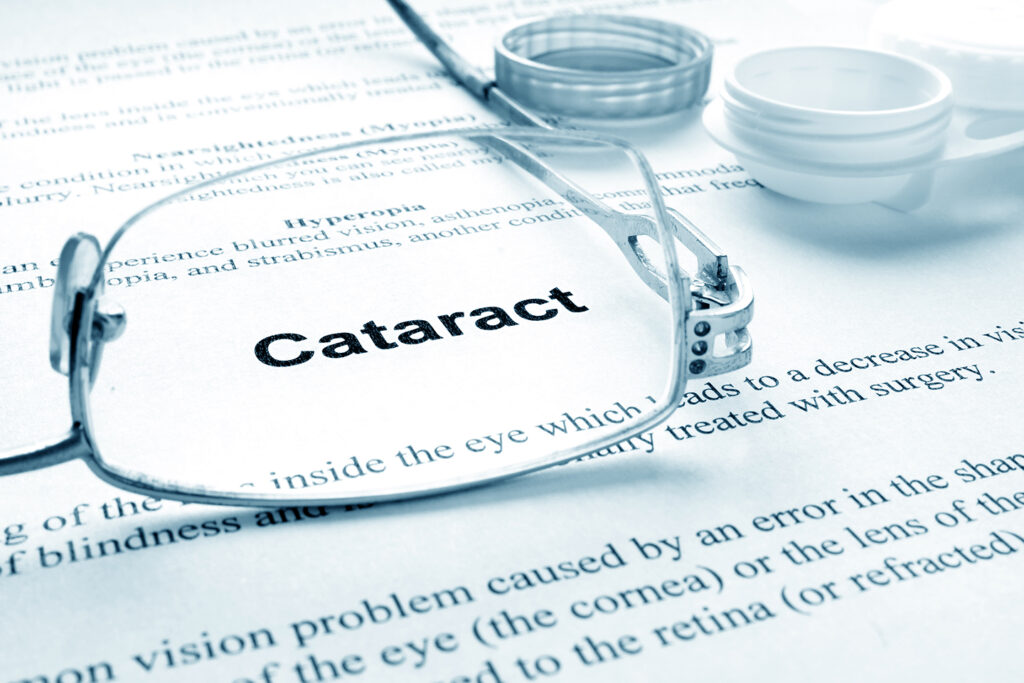Cataract surgery in Melbourne is a common procedure to restore vision affected by cataracts. The natural lens in the eye should be clear to focus light correctly, but a cataract causes the lens to become cloudy. This can make vision blurry, hazy, or less colourful. Cataracts are a frequent cause of vision loss in adults over 50. Learn more about cataracts on Healthdirect.
Cataract Causes
Cataracts most often develop as part of the normal ageing process, typically after age 40. Other causes include genetics, certain medical conditions like diabetes, smoking, too much sun exposure without protection, use of corticosteroid medications, or a previous eye injury. You can read more about eye conditions on our website.
Cataract Symptoms
Common cataract symptoms include blurry or cloudy vision, duller colours, glare sensitivity, and trouble seeing at night. You may also need to change your glasses prescription more often. If your glasses are no longer helping, or your vision affects your daily activities, it may be time to consider treatment. Early symptoms might be managed with new glasses, but cataract surgery is the only way to remove cataracts.
Cataract Treatments in Melbourne
Cataract surgery involves removing the cloudy lens and replacing it with an artificial intraocular lens (IOL). This procedure is performed safely and routinely by experienced surgeons. Your ophthalmologist will discuss your options and help you choose the right IOL for your vision needs.
Book a Cataract Assessment in Melbourne
If you have been referred by your optometrist or GP, or you would like an assessment, contact Vista Eyes Laser Eye Clinic to arrange a consultation. Our team will review your eye health, answer your questions, and help you understand your options for cataract surgery in Melbourne.
*This information is general in nature. All medical and surgical procedures carry risks and potential benefits. Please consult your ophthalmologist for personalised advice.
